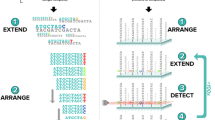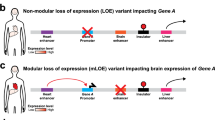Abstract
Cystic fibrosis (CF) is one of the most common monogenic diseases affecting Caucasians and has an incidence of approximately 1:3,300 births. Currently recommended screening panels for mutations in the responsible gene (CF transmembrane regulator gene, CFTR) do not detect all disease-associated mutations. Our laboratory offers extensive sequencing of the CFTR (ABCC7) gene (including the promoter, all exons and splice junction sites, and regions of selected introns) as a clinical test to detect mutations which are not found with conventional screening. The objective of this report is to summarize the findings of extensive CFTR sequencing from our first 157 consecutive patient samples. In most patients with classic CF symptoms (18/24, 75%), extensive CFTR sequencing confirmed the diagnosis by finding two disease-associated mutations. In contrast, only 5 of 75 (7%) patients with atypical CF had been identified with two CFTR mutations. A diagnosis of CF was confirmed in 10 of 17 (58%) newborns with either positive sweat chloride readings or positive immunoreactive trypsinogen (IRT) screen results. We ascertained ten novel sequence variants that are potentially disease-associated: two deletions (c.1641AG>T, c.2949_2853delTACTC), seven missense mutations (p.S158T, p.G451V, p.K481E, p.C491S, p.H949L, p.T1036N, p.F1099L), and one complex allele ([p.356_A357del; p.358I]). We ascertained three other apparently novel complex alleles. Finally, several patients were found to carry partial CFTR gene deletions. In summary, extensive CFTR gene sequencing can detect rare mutations which are not found with other screening and diagnostic tests, and can thus establish a definitive diagnosis in symptomatic patients with previously negative results. This enables carrier detection and prenatal diagnosis in additional family members.
Similar content being viewed by others
References
American College of Obstetricions and Gynecologists and American College of Medical Genetics (2001) Preconception and prenatal carrier screening for cystic fibrosis, clinical and laboratory guidelines. American College of Obstetrics and Gynecology publication. Washington, DC
Audrezet MP, Chen J-M, Raguenes O, Chuzhanova N, Giteau K, Le Marechal C, Quere I, Cooper DN, Ferec C (2004) Genomic rearrangements in the CFTR gene: extensive allelic heterogeneity and diverse mutational mechanisms. Hum Mutat 23:343–357
Bombieri C, Bonizzato A, Castellani C, Assael BM, Pignatti PF (2005) Frequency of large CFTR gene rearrangements in Italian CF patients. Eur J Hum Genet 13:687–689
Boyle MP (2003) Nonclasssic cystic fibrosis and CFTR-related diseases. Curr Opin Pulm Med 9:498–503
Chen JM, Cutler C, Jacques C, Boeuf G, Denamur E, Lecointre G, Mercier B, Cramb G, Ferec C (2001) A combined analysis of the cystic fibrosis transmembrane conductance regulator: implications for structure and disease models. Mol Biol Evol 18:1771–1788
Comeau AM, Parad RB, Dorkin HL, Dovey M, Gerstle R, Haver K, Lapey A, Sullivan BP, Waltz DA, Zwerdling RG, Eaton RB (2004) Population-based newborn screening for genetic disorders when multiple mutation DNA testing is incorporated: a cystic fibrosis newborn screening model demonstrating increased sensitivity but more carrier detections. Pediatrics 113:1573–1581
Danziger KL, Black LD, Keiles SB, Kammesheidt A, Turek PJ (2004) Improved detection of cystic fibrosis mutations in infertility patients with DNA sequence analysis. Hum Reprod 19:540–546
Grody WW, Cutting GR, Klinger KW, Richards CS, Watson M, Desnick RJ (2001) Laboratory standards and guidelines for population-based cystic fibrosis carrier screening. Genet Med 3:149–154
Hantash FM, Redman JB, Anderson B, Starn K, Buller A, McGinniss M, Quan F, Sun W, Strom CM (2004) Identification of promoter and exon deletions in the CFTR gene. J Mol Diagn 6(4):G8 409
Hantash FM, Redman JB, Anderson B, Starn K, Buller A, McGinniss M, Quan F, Sun W, Strom CM (in press) Novel and recurrent rearrangements in the CFTR gene: Clinical and laboratory implications for cystic fibrosis screening. Hum Genet
Niel F, Martin J, Dastot-Le Moal F, Costes B, Boissier B, Delattre V, Goosens M, Girodon E (2004) Rapid detection of CFTR gene rearrangements impacts on genetic counselling in cystic fibrosis. J Med Genet 41:e118
Pignatti PF, Bombieri C, Marigo C, Benetazzo M, Luisetti M (1995) Increased incidence of cystic fibrosis gene mutations in adults with disseminated bronchiectasis. Hum Mol Genet 4:635–639
Ramensky V, Bork P, Sunyaev S (2002) Human and non-synonymous SNPs: server and survey. Nucleic Acids Res 30:3894–3900
Rosenstein BJ, Cutting GR (1998) The diagnosis of cystic fibrosis: a consensus statement; Cystic Fibrosis Foundation Consensus Panel. J Pediatr 132:589–595
Strom CM, Huang D, Chen C, Buller A, Peng M, Quan F, Redman J, Sun W (2003) Extensive sequencing of the cystic fibrosis transmembrane regulator gene: assay validation and unexpected benefits of developing a comprehensive test. Genet Med 5:9–14
Wang W, He Z, O’Shaughnessy TJ, Rux J, Reenstra WW (2002) Domain-domain associations in cystic fibrosis transmembrane conductance regulator. Am J Physiol Cell Physiol C1170–C1180
Acknowledgements
We are grateful to the patients and their families and physicians for their participation in this study. In particular, we would like to thank the following clinicians for their input on patients, clinical information and for obtaining additional family specimens: Joanne Gambo CRNP, Joan Germana MD, Eleanor Langfelder-Schwind MS CGC, Maria Santiago MD, and Laurie Varlotta MD. Finally, we gratefully acknowledge our laboratory operations staff for performing the DNA extractions and sequencing analyses for this assay. In particular, Nadia Dekov, Greg Putignani, and Jeremy Teigiser performed most of the sequencing reactions and initial sequence analyses.
Author information
Authors and Affiliations
Corresponding author
Rights and permissions
About this article
Cite this article
McGinniss, M.J., Chen, C., Redman, J.B. et al. Extensive Sequencing of the CFTR gene: lessons learned from the first 157 patient samples. Hum Genet 118, 331–338 (2005). https://doi.org/10.1007/s00439-005-0065-1
Received:
Accepted:
Published:
Issue Date:
DOI: https://doi.org/10.1007/s00439-005-0065-1




